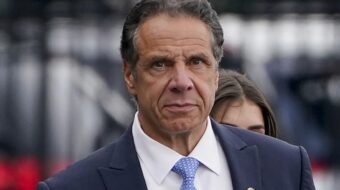Last week’s Supreme Court decision allowing states to require a photo ID to be able to vote is a big step in the wrong direction.
At the founding of our country, the right to vote was denied if you were a woman, didn’t have enough property, or were not white. This year’s two contenders for the Democratic presidential nomination would not have been able to vote.
It wasn’t until the 15th Amendment in 1870 that, at least on paper, the right to vote was extended to African American men, and it took 50 years more for that same right to apply to women under the 19th Amendment.
Nevertheless whole communities continued to be disenfranchised by literacy requirements, poll taxes, ballot information not in their language and even violence.
One of the struggles of the civil rights movement of the 1950s and ’60s was for the right to freely vote.
This struggle resulted in the Voting Rights Act, which guaranteed the right to vote regardless of race and the 24th Amendment, which outlawed poll taxes. The Voting Rights Act was later amended to protect the voting rights of language minorities.
Later laws like “motor-voter” which requires states to provide voter registration when people obtain drivers licenses or allow them to register on Election Day, further advanced voting rights.
Today the far-right is pushing the baseless myth that undocumented immigrants are illegally registering to vote, or that citizens who lost the right to vote because of a criminal conviction are illegally voting.
In recent elections, GOP squads have zeroed in on minority communities, challenging the eligibility of Black and Latino citizens to vote, causing many to turn away from the polls.
This is nothing but an attempt by the ultra-right to hold onto power by preventing those who would vote against them from casting ballots. Restrictive photo ID requirements are part of this effort.
We should be expanding voter participation, not restricting it. One way to do this is to support the Election Day Registration Act allowing same-day registration at the polls for all federal elections, introduced by Sens. Russ Feingold (D-Wis.) and Amy Klobuchar (D-Minn.) and Rep. Keith Ellison (D-Minn.) in the House.









